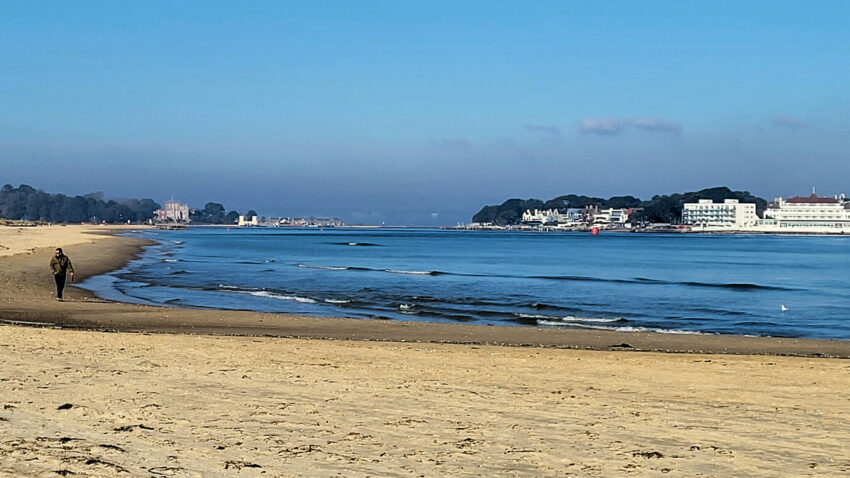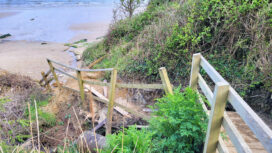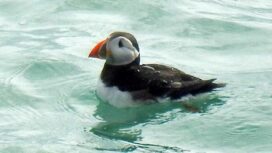More awareness by dog owners of wading birds and their habitat along the Studland peninsula is being urged, to help protect the overwintering visitors.
With the Sandbanks Ferry out of action, it may have been a huge inconvenience for commuters, but an unintended consequence has been less free-running dogs on the beach brought over from Poole for daily walks.
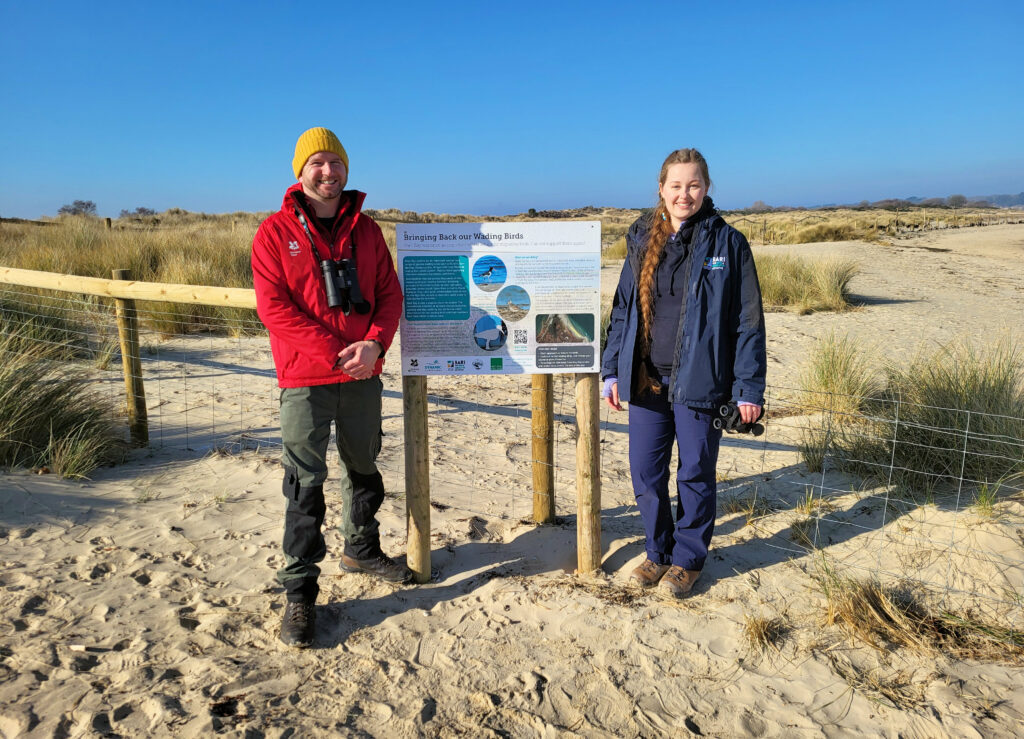
National Trust ranger Ben Cooke and BARI warden Emily Henwood at Shell Bay
Beach site fenced off to protect waders
At Shell Bay this winter, the rare birds visiting from the Arctic have been mostly undisturbed by dogs due to less visitors and also aided by a new fenced off zone being trialled at Shell Bay.
This has given an insight into the way that the National Trust-owned shoreline, a designated Special Protection Area for birds, could be a very different place with less human and canine activity.
The 8,000 square metre section of the beach at Shell Bay that has been fenced off, allows wading birds to shelter and rest at high tide while they can’t feed, without any fears of being disturbed – which could be enough to save their lives.
And a Keep Your Distance campaign has been launched around Poole Harbour and Studland Bay to work with dog owners and give the birds a better chance of survival.
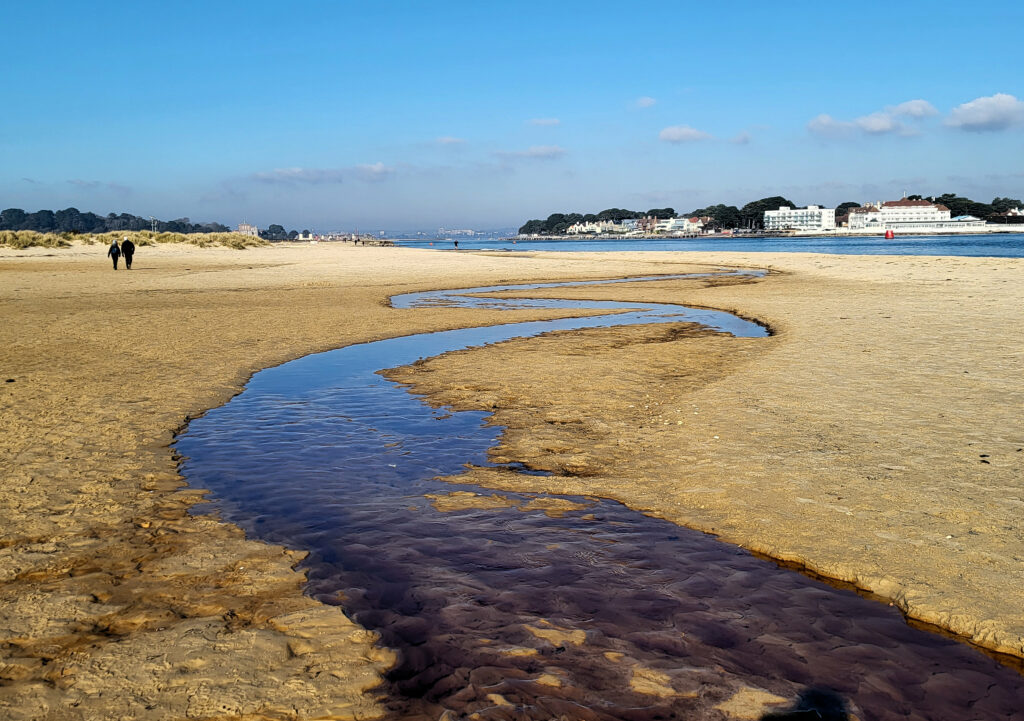
Shell Bay has been quiet while the chain ferry is out of operation
25,000 winter birds depend on Poole Harbour
An estimated 25,000 birds depend on Poole Harbour to stay alive through winter, including 17 species which are considered to be of national or international importance.
As the beaches become busier, it gets harder for the birds to feed and rest without being disturbed; shorter daylight hours mean they have less time to feed, and flying away when chased by dogs costs them energy which takes a long time to replace.
But if dog owners are able to use leads, walk higher up the beach at low tide when the birds are feeding, or change routes to avoid resting or feeding birds during winter months, it could make all the difference.
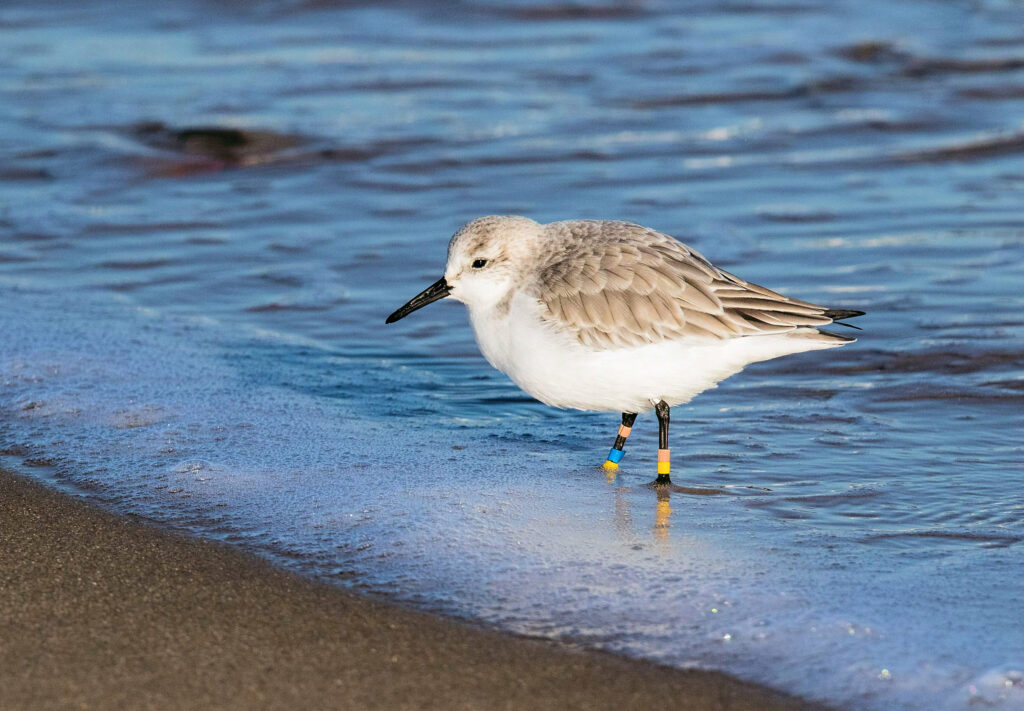
A sanderling at Shell Bay, an important winter feeding ground for the species
A sensitive time of the year for birds
Ben Cooke, area ranger for the National Trust on the Isle of Purbeck, said:
“It is a sensitive time of year for wintering birds, and this is all about trying to get people to be more responsible.
“In Shell Bay we have the intertidal zone on the beach which is very important for species like sanderling, elsewhere we have oystercatchers and drumlin which need the mud, then on the nearby heath in the winter we have snipe and woodcock, and they all have their own needs.
“Poole Harbour is an incredibly important site nationally, there are species like the avocet and the black-tailed godwit which have up to 17 percent of their British winter population here.
“It’s a major stopover for migratory birds, including ospreys, in spring as they head north and then again as they head south on their autumn passage.”
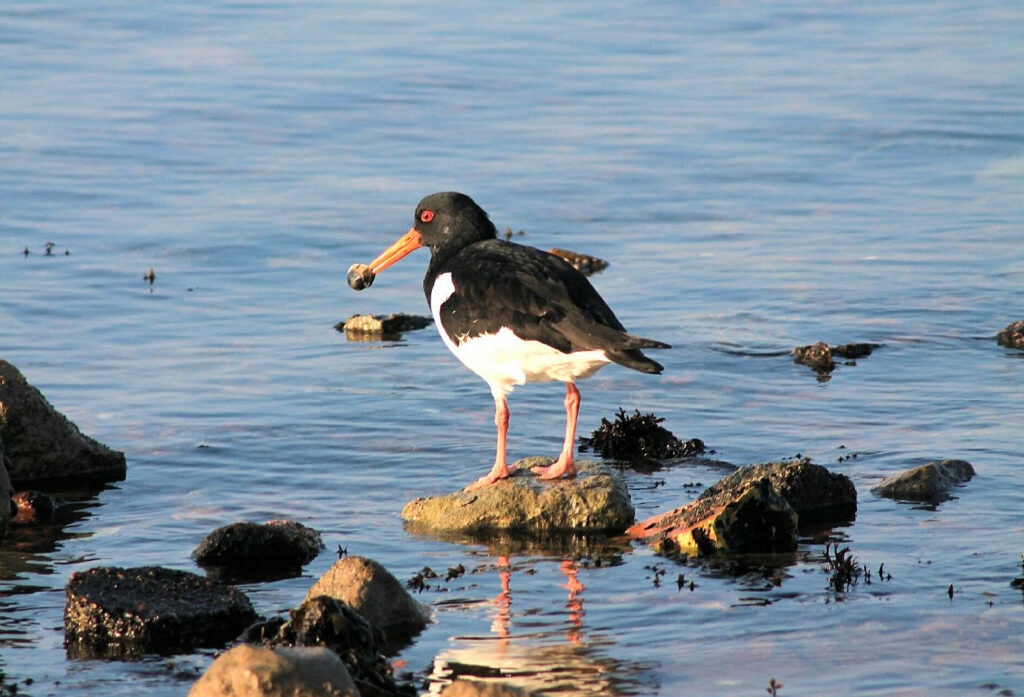
An oystercatcher feeding in the intertidal zone along Studland Bay
Social media awareness of Shell Bay has soared
Ben added:
“But in the winter, the number of birds and species explodes dramatically. More than 25,000 water fowl, waders, open water birds, long-legged water birds and gulls can be counted in the harbour at any one time at the peak of the winter season.”
In Shell Bay, the zone between low and high tides are rich feeding grounds in the winter for birds which migrate to Dorset from the high Arctic for the warmer temperatures, but disturbances from humans and their dogs can make things challenging for the birds.
Species like oystercatcher, drumlin, plover, bar-tailed godwit and sanderling were all once frequent winter visitors to the area, but over the past few years, social media awareness has also brought a lot of new human visitors to the area.
Pictures of the beach on beautiful winter mornings are posted on Twitter, Instagram and Facebook daily, leading to it becoming a social media destination – and the ferry’s return at the end of February 2023 is expected to bring a hefty increase in visitor numbers.
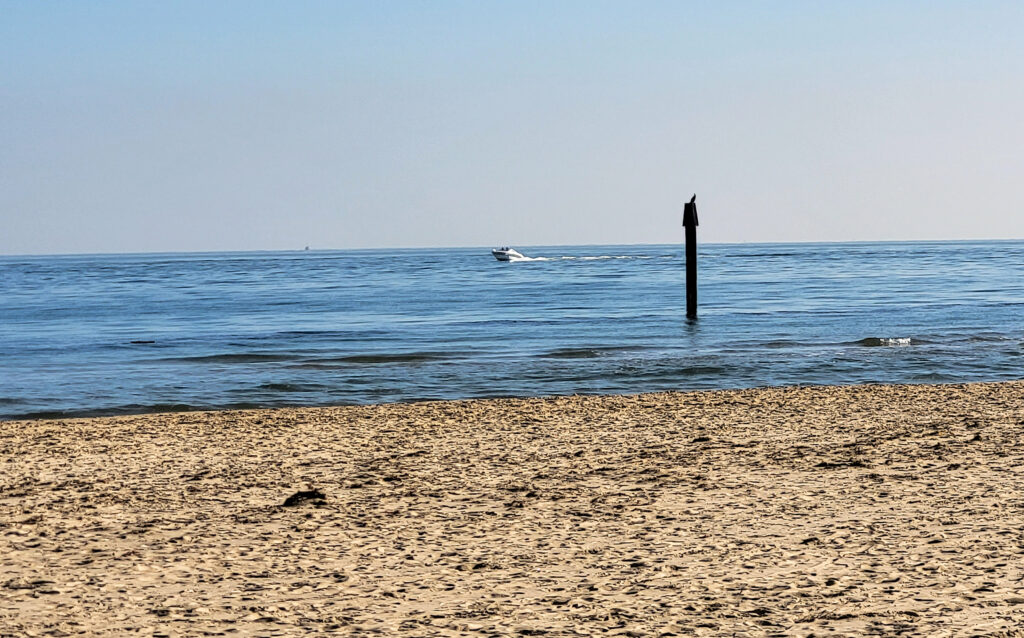
Finding a balance between recreation and nature can be a challenge
“All work together to find a balance”
Emily Henwood, coastal engagement officer for Dorset’s Bird and Recreation Initiative, said:
“Poole Harbour and Shell Bay have two sides to them – they’re places of great beauty, but you also have a lot of people who want to use it for recreation, like water sports and dog walking.
“It becomes a matter of how we can all work together to find a balance between people enjoying themselves, but also respecting nature – finding harmony.
“We don’t want to stop people coming here, but we do want to raise awareness so they can be more responsible when they do come here.
“A lot of people don’t realise that this coastline is designated a special protection area because of the birds, so if the birds weren’t here it would lose a lot of its protection and the landscape might then change.
“It works in a nice circle of protect the birds, protect the landscape and keep this beautiful place that everyone likes to enjoy.”
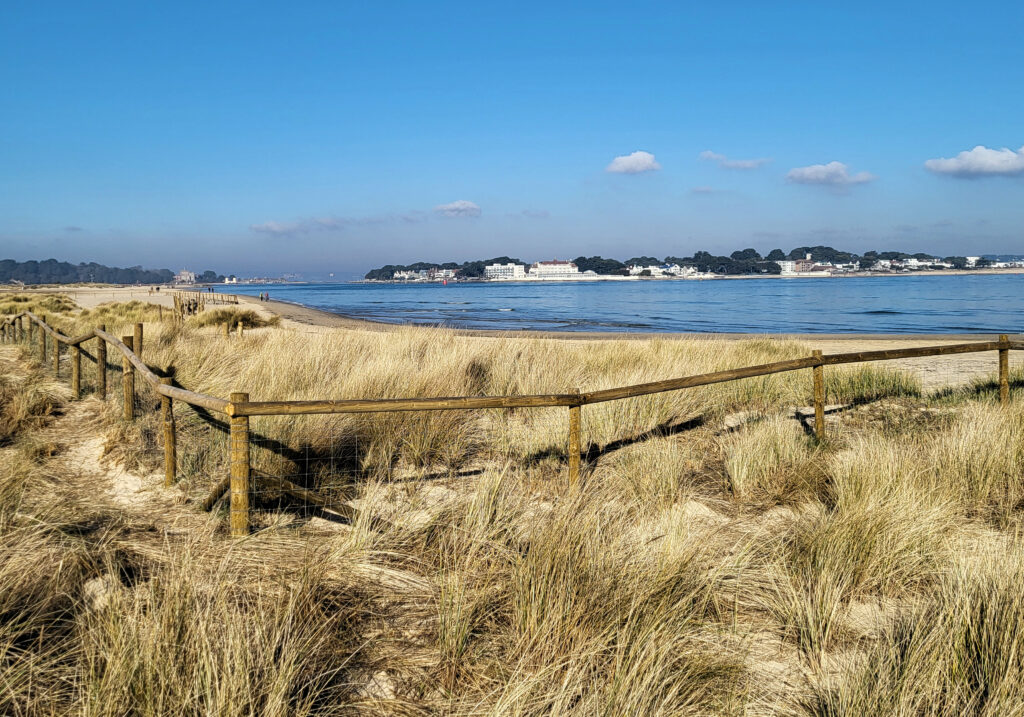
A wader protection zone has been fenced off to give birds a quiet area to rest in
Two-year trial for the new roosting zone
Patrols of the area through autumn and winter have suggested that it has been a lot quieter because of the longer absence of the chain ferry, and the increased sightings of a larger number of bird visitors, back up the theory.
The new wader protection area will be in place for a two-year trial period as a partnership between the National Trust, Birds of Poole Harbour, Dynamic Dunescapes and the Birds and Recreation Initiative.
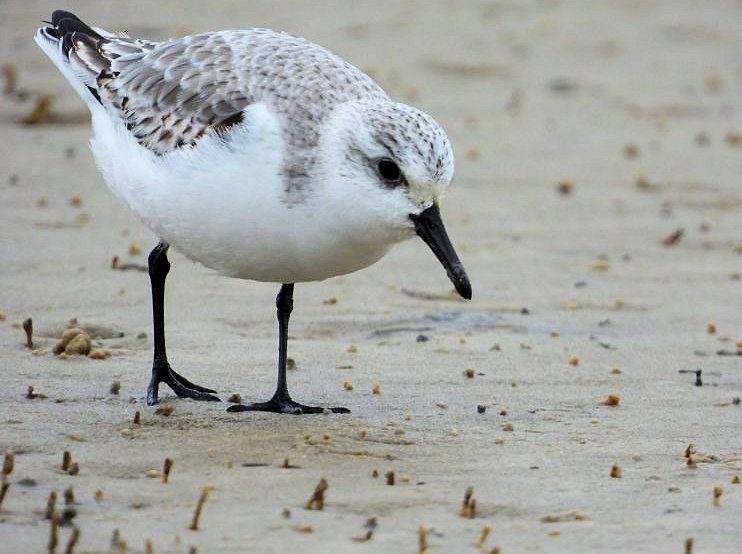
The birds need to double their weight over winter to make the 3,000 mile journey back home
Epic migrations of 3,000 miles to Purbeck
Emily said:
“The birds make epic migrations of almost 3,000 miles from the Arctic to winter in Purbeck, and when they get here they are absolutely exhausted and need to feed and rest if they are going to make the return journey safely.
“In the case of the sanderling, they weigh about 60 grammes and need to double their weight over winter in order to be able to make the journey back, so it shows just how much they need to eat and how important the time to rest is.”
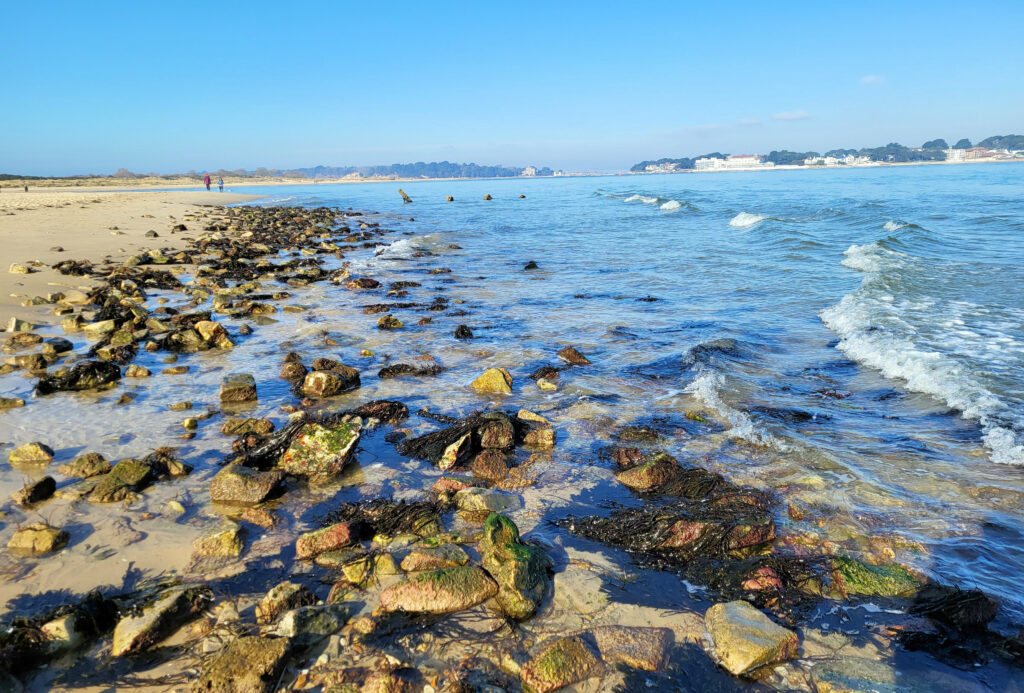
Shell Bay is expected to get a lot busier again once the chain ferry is running again
Hoping to help birds thrive at Shell Bay
Ben added:
“We hope this new wader protection area will protect and restore one part of this once important roost site, providing the undisturbed space the birds need to begin to thrive here again. It will also give us the chance to see what species take advantage of this space.
“Visitors will still be able to walk on both sides of the fencing in all but the highest tides, when they can walk around the back of the fencing, and through the dunes. We know that a lot of them read the information boards and understand the importance of the protection area.
“We hope that even when the ferry returns and more dog walkers are back on the beach we will still be able to provide a quiet, undisturbed area for the birds to rest at high tide.”
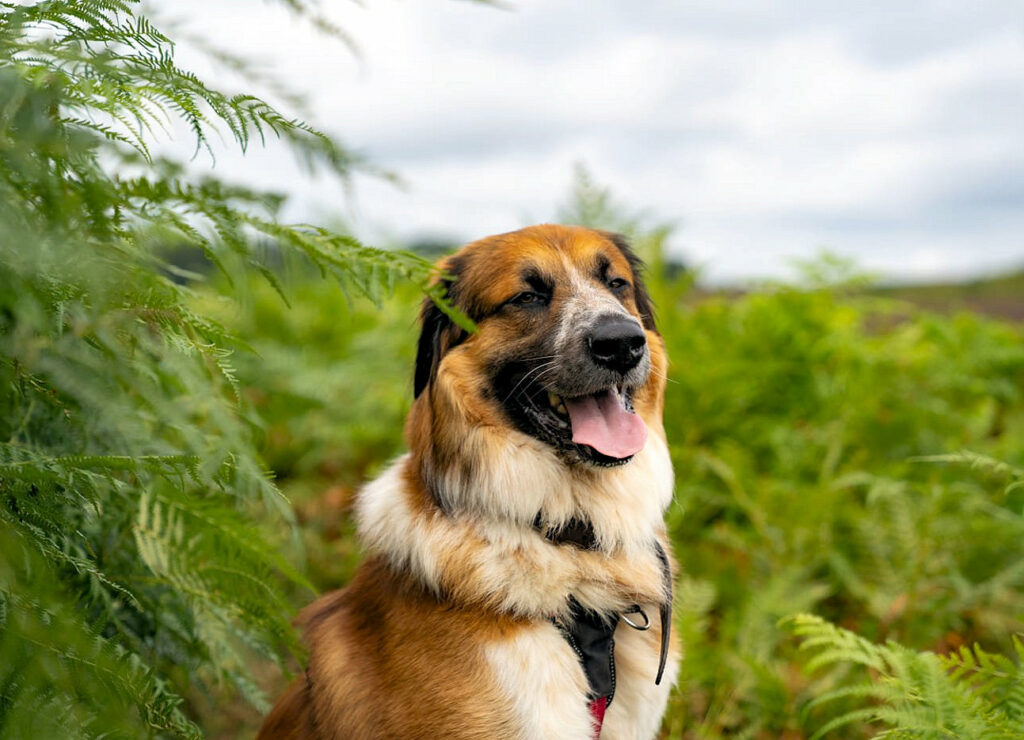
Dorset Dogs has come up with 75 perfect walks where pets can run freely
Alternative walks where dogs can run off lead
The Bird and Recreation Initiative, working with Dorset Dogs, are hoping to help ease the problem on Shell Bay by not only raising awareness of the need not to disturb bird visitors, but also by offering alternatives where dogs can run free off their leads without causing any problems.
A Dorset county map of 75 of the best places to exercise dogs includes a dozen in Purbeck, including Days Park, Monkey Beach, Swanage Downs and North Beach in Swanage, Wareham Forest, Riverside Walk and Bog Lane Fields in Wareham, and Kimmeridge, Daggers Gate, Fossil Farm and Burngate walk.
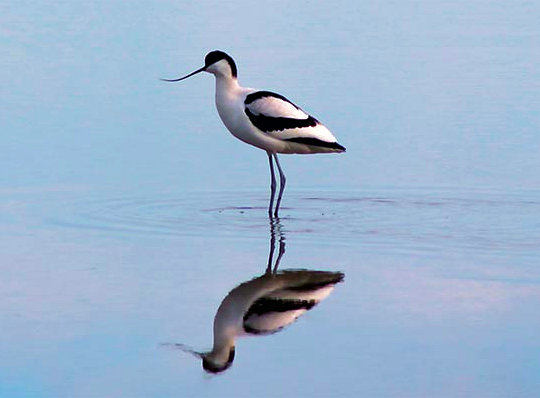
An avocet reflected at low tide along the beach at Shell Bay
Further information
- The National Trust’s Canine Code for Studland Bay is on their website
- Discover the work of the Bird and Recreation Initiative, BARI
- Read all about the 333 species of bird that have been spotted at the Birds of Poole Harbour
- Search out the best places for dogs to run off lead at Dorset Dogs
